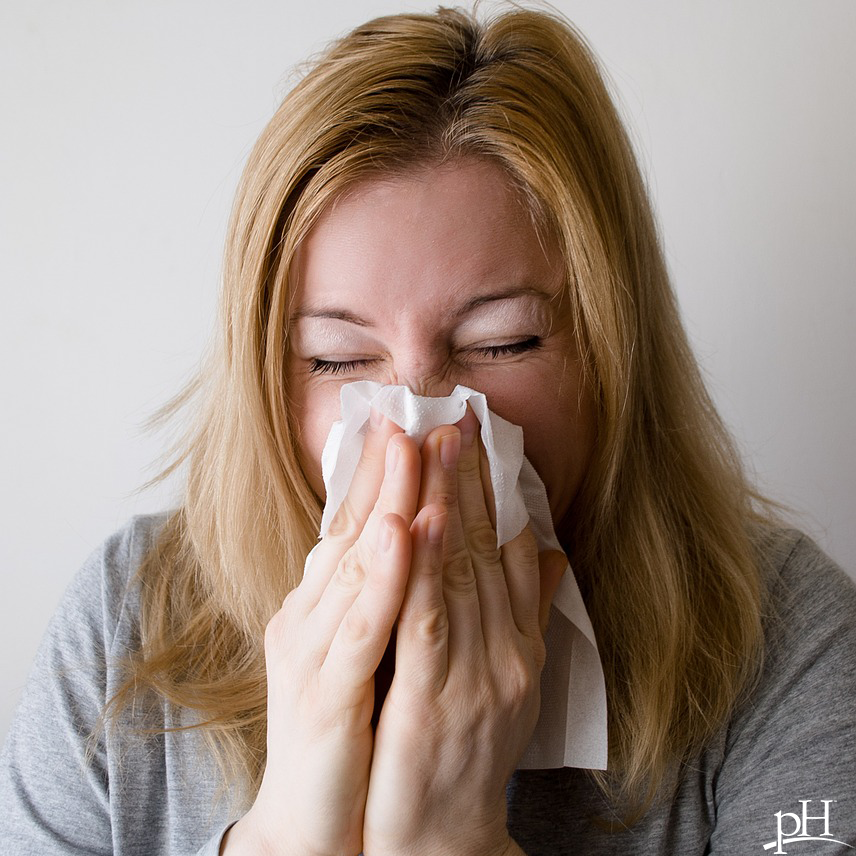Wheezes and Sneezes Just From Fresh Breezes?
11 years ago | Allergies
By Franz Gliederer, MD, MPH
It has been allergy season for me, and recently, it all came to a head. I came home late one night. I had been gone all day. Looking for a nice fresh breeze to air out my home, I opened two doors to the outside – my mistake. I started sneezing like crazy almost every few seconds with seemingly no end to it for some 10-15 minutes. I had to do something. I could have taken antihistamines or cortisone nose sprays (helpful for nasal congestion, but weakens the nasal mucosa and can cause dryness and even nose bleeds), but I don’t like to take medicine if I don’t need to. So I did the most practical thing I could think of. I turned on the A/C fan, which is connected to a good HEPA (high-efficiency particulate arrestance, meaning it filters out small particles) filter system. I also turned on a portable HEPA filter in my bedroom, plus an air ionizer, which removes very small allergy particles. Within seven to 10 minutes, the sneezing stopped. So let’s take a look at some common pollutants and allergy culprits, and consider how filters can help.
What are some common indoor air pollutants?
Typical indoor pollutants may include pollution that has come in from outside, gases (e.g., carbon monoxide, ozone, nitrogen dioxide, sulfur dioxide), molds, bacteria, viruses, pollen, animal dander, particles from dust mites, tobacco smoke, and chemicals like formaldehyde found primarily in adhesive or bonding agents found in carpets, upholstery, particle board and plywood paneling.
How can HEPA filters help remove these air pollutants?
Air filters have been shown to be effective in improving indoor air quality and improving health conditions like asthma and allergies. There are a variety of air filters and purifiers on the market within all kinds of price ranges and qualities. You’ll want to identify the most cost-effective device for your individual needs. Factors to consider are room sizes, amount and type of pollution, quality of the filter, and filtered air turnover per minutes/hour. Here is a list of California-certified options. To be certified, air cleaners must be tested for electrical safety and ozone emissions, and meet an ozone emission concentration limit of 0.050 parts per million.
Can air pollution cause health problems?
Typically, air pollution is closely related to worsening of nasal congestion, sinus problems and asthma, but may have a much wider range of impact affecting uptake of oxygen to the brain (especially at night), cardiovascular health, sleep disturbance and sleep apnea, brain function and premature aging.
What can you do?
- If you have nasal or respiratory allergies and symptoms are especially worse at night, try a free-standing HEPA filter in your bedroom.
- If you are living in close proximity to heavy traffic areas such as a freeway or a busy main street, check for dust and black particle matter on your furniture. If you have it, you should pay attention and purify your air.
- Sure, you can use over-the counter help and prescription medicines to relieve your symptoms, but remember, you are just reducing your symptoms and may not be addressing the cause of the problem.
- See an ENT (ears, nose and throat) specialist if you have permanent problems with sinusitis or a clogged-up nose. Sometimes, there is a need to surgically drain the sinuses or remove nasal polyps, which frequently are reactive to chronic nasal congestion.
- If you do not know what kind of allergies you have, have them tested. Use our natural supplements and proactive solutions to fight your allergies.
Enjoy Your Healthy Life!
The pH professional health care team includes recognized experts from a variety of health care and related disciplines, including physicians, attorneys, nutritionists, nurses and certified fitness instructors. This team also includes the members of the pH Medical Advisory Board, which constantly monitors all pH programs, products and services. To learn more about the pH Medical Advisory Board, click here.



